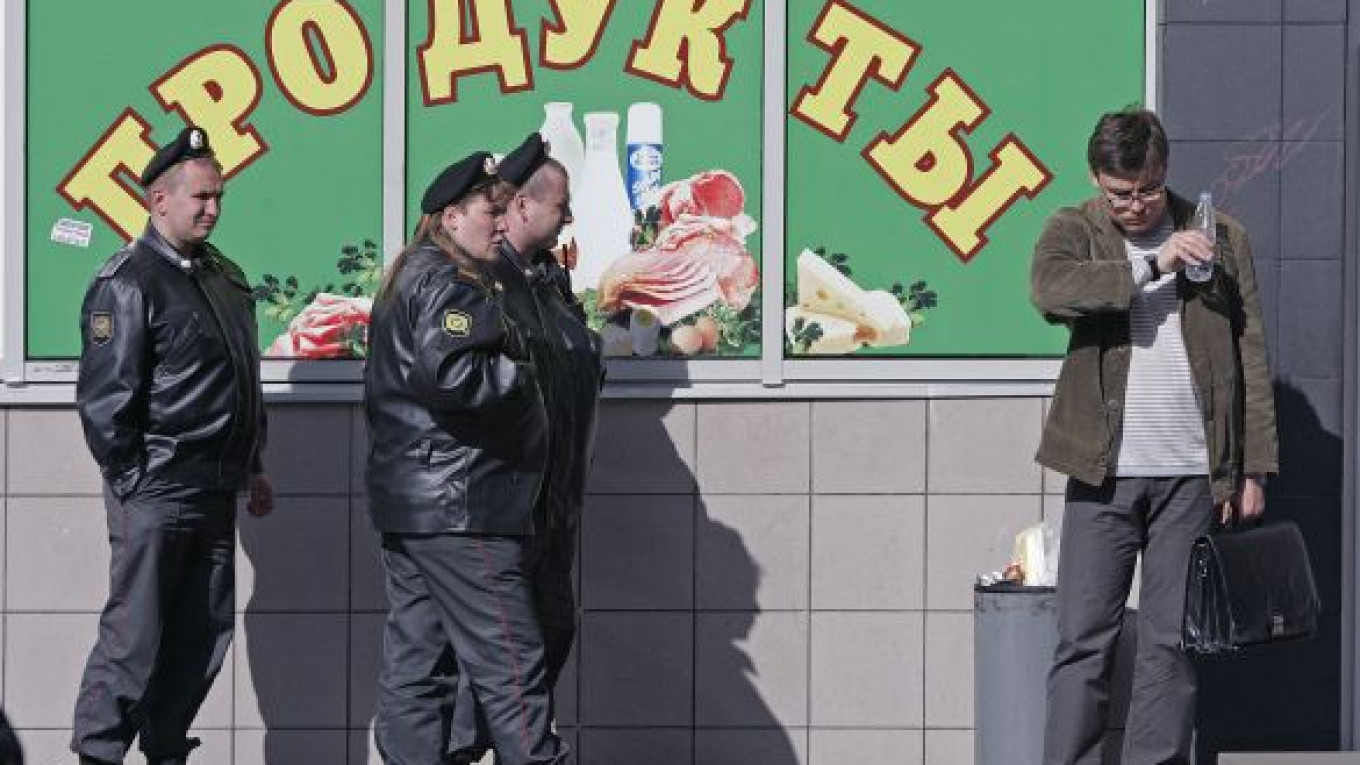A month after the start of the much-trumpeted police reform, improvements are already tangible, Interior Minister Rashid Nurgaliyev said Wednesday — even as a survey found that public attitudes toward the police remain overwhelmingly negative.
"I think citizens are already noticing certain changes for the better — first and foremost concerning their rights and freedoms," Nurgaliyev said on Militseiskaya Volna radio, according to a transcript posted on his ministry's web site.
Officers have grown more lawful, impartial and open, he said, without providing any factual evidence.
The police reform, initiated by President Dmitry Medvedev last year, aims at improving the country's notoriously corrupt and inefficient police force.
Apart from a name change — from "militsia" to "politsia" — the reform will trim the 1.4 million-member force by 20 percent by the end of this year. All officers also must undergo a recertification process meant to weed out the most incapable and dishonest.
Nurgaliyev, a career KGB and Federal Security Service officer, enthusiastically embraced the reform Wednesday — albeit in bureaucratic language. He renounced expressions like "fight against crime" because it implies that policemen are fighters. "A policeman is a defender — a defender of society and of individuals," he said.
But Nurgaliyev's comments coincided with the release of new data showing that people's attitudes toward the police are not improving.
A survey published Wednesday found that 59.5 percent of Russians do not trust the police — practically unchanged from November, when 59.8 said they did not trust the police. But the results were an improvement from November 2004, when the figure was 69.3 percent.
"As was the case seven years ago, law enforcement agencies are feared more or less like criminals," said Boris Dubin, a researcher with the Levada Center, which conducted the national poll with the Public Verdict human rights organization, Novaya Gazeta reported.
No margin of error was given.
Meanwhile, official ministry statistics showed a remarkable fall in crimes for last year — although the number of reported incidents was actually up.
The number of reported crimes rose 4.8 percent to 23.88 million, but criminal cases were opened only for 9.1 percent of them, resulting in a 10.7 percent drop compared with the number of cases opened in 2009, the ministry said on its web site.
The number of cases opened for economic crimes, often involving corruption charges against businesses, fell 35.5 percent.
The numbers do not reflect real change but rather a real drop in police efficiency since the reform was announced and the fact that the Interior Ministry has largely abandoned its previous practice of manipulating statistics, Kommersant reported, citing a research report from the St. Petersburg-based European University.
A Message from The Moscow Times:
Dear readers,
We are facing unprecedented challenges. Russia's Prosecutor General's Office has designated The Moscow Times as an "undesirable" organization, criminalizing our work and putting our staff at risk of prosecution. This follows our earlier unjust labeling as a "foreign agent."
These actions are direct attempts to silence independent journalism in Russia. The authorities claim our work "discredits the decisions of the Russian leadership." We see things differently: we strive to provide accurate, unbiased reporting on Russia.
We, the journalists of The Moscow Times, refuse to be silenced. But to continue our work, we need your help.
Your support, no matter how small, makes a world of difference. If you can, please support us monthly starting from just $2. It's quick to set up, and every contribution makes a significant impact.
By supporting The Moscow Times, you're defending open, independent journalism in the face of repression. Thank you for standing with us.
Remind me later.







